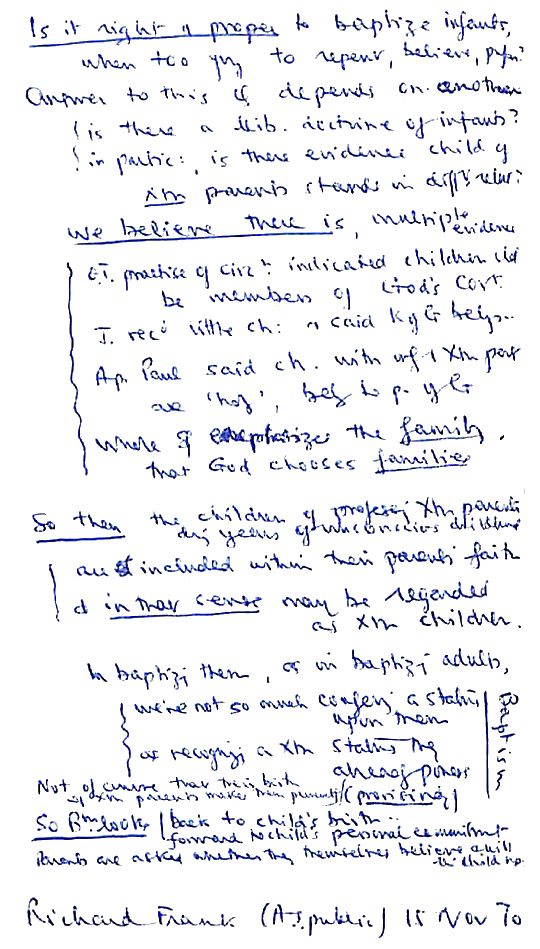I’ve got several things to post and comment on from Revd Dr John Stott (one of the great Christian leaders, preachers, evangelists and writers of the last hundred years), but the place to start is with a personal connection.
As I blogged the previously, I was baptised by ‘Uncle’ John on 15th November 1970. I was nine months’ old, in case you’re wondering… and I screamed the place down (‘the place’ being All Souls Langham Place in London)!
I had the real delight of being sent a scan of Stott’s handwritten notes from that very service by a friend of mine who was working through Uncle John’s extensive collection papers and notes on behalf of his estate (what a wonderful task!) and happened to spot my name!
The background is that some of my extended family came from a church background that led to them being very negative about a baby being baptised and so my parents asked John if he might give a few words by way of explanation before that part of the service (not as the sermon, but standalone remarks). So these are his handwritten notes behind him explaining why he felt it was biblically appropriate (or as he puts it in the notes below: “Is it right and proper?”) to administer this sacrament to an infant.

Here’s my transcription of what he wrote down – I’ve stuck with his note form, including abbreviations, though I’ve added bullet-point for clarity at one point. Many thanks to my father, Tom Frank, for helping me do some more deciphering on one or two places where I struggled with the handwriting…
Is it right and proper to baptize infants, when too young to repent, believe, profess?
Answer to this Q depends on another: is there a Biblical doctrine of infants? In particular: is there evidence child of Christian parents stands in different relationship.
We believe there is, multiple evidence:
- OT practice of circumcision indicated children could be members of God’s covenant
- Jesus received little children: and said Kingdom of God belongs…
- Apostle Paul said children with one Christian parent are ‘holy’, belong to people of God
- Whole scripture emphasises the family. that God chooses families
So then the children of professing Christian parents, during the years of unconscious childhood are included within their parents faith and in that sense may be regarded as Xian children.
In baptizing them, or in baptizing adults, we’re not so much conferring a status upon them as recognising a Xian status ahead of profess. Not of course that their birth of Xian parents makes them permanent / (provisionally)
So Bm looks back to child’s birth… forward to child’s personal commitment. Parents are asked whether they themselves believe & will bring the child up.


